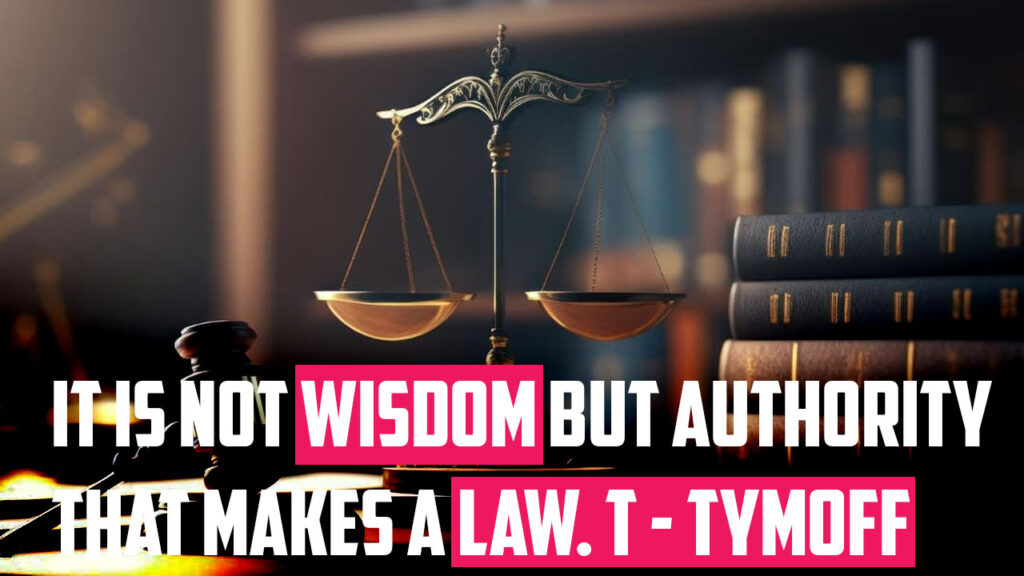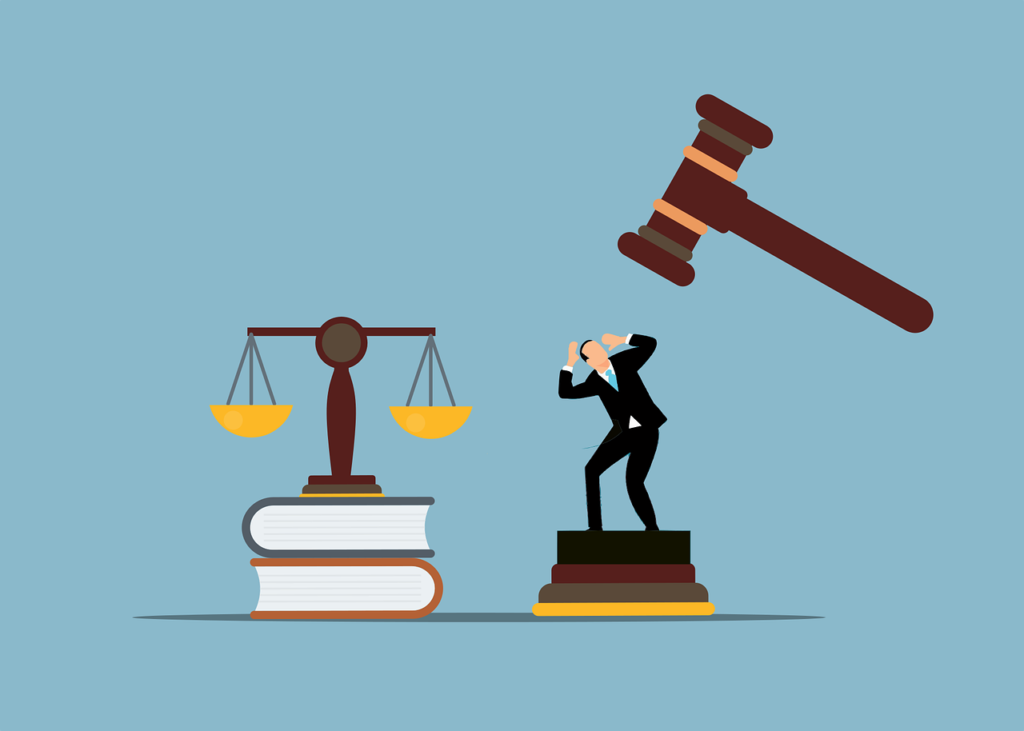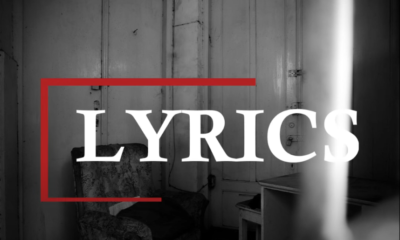Law
it is not wisdom but authority that makes a law. t – tymoff

In today’s world, where power dynamics and institutional authority often overshadow rational discourse, this observation becomes increasingly relevant. From questionable regulations to controversial legislations, we’ve all encountered laws that make us wonder about their true origins and purposes. This tension between wisdom and authority in law-making affects everything from our daily lives to the very foundations of our society.
Join us as we dive deep into this thought-provoking topic, examining how authority shapes our legal landscape, exploring the delicate balance between wisdom and power, and understanding why the pen that writes our laws is often held by authority rather than wisdom. We’ll uncover the intricate relationship between power and legislation, and explore how modern legal systems continue to evolve under these influences.
Understanding Authority in Law-Making

Legal authority has evolved from ancient tribal customs to modern democratic institutions. Throughout history, authority in law-making has shifted from monarchs and religious leaders to elected representatives and constitutional bodies. This transformation reflects society’s changing understanding of power, justice, and governance.
Key sources of legal power include:
- Constitutional frameworks
- Legislative bodies
- Executive orders
- Judicial precedents
- International treaties
| Authority Type | Primary Function |
|---|---|
| Legislative | Creates laws |
| Executive | Implements laws |
| Judicial | Interprets laws |
The Complex Relationship Between Wisdom and Law
Legislative wisdom emerges from the intersection of experience, knowledge, and ethical consideration in law-making. While lawmakers should ideally possess deep understanding of societal needs, historical context, and potential consequences, the reality often differs.
Historical examples demonstrate instances where authority trumped wisdom in law-making:
- Prohibition laws in 1920s America
- Jim Crow laws in the Southern United States
- Apartheid legislation in South Africa
| Aspect | Authority-Based Laws | Wisdom-Based Laws |
|---|---|---|
| Foundation | Power and control | Societal benefit |
| Longevity | Often temporary | Generally enduring |
| Public acceptance | Usually forced | Naturally adopted |
Critical Analysis of Modern Legal Systems
Democratic systems prioritize public input and transparent processes, while authoritarian regimes concentrate power in few hands. This fundamental difference shapes how laws are created and enforced. In democracies, multiple stakeholders participate through elected representatives, public hearings, and referendum processes. Authoritarian systems, however, often bypass these checks and balances.
Special interest groups and corporate entities wield significant influence through lobbying and campaign contributions. These powerful actors can shape legislation in ways that may not align with public interest. Media organizations further complicate this dynamic by influencing public opinion and legislative priorities through selective coverage and editorial stances.
- Key Influences in Modern Law-Making:
- Lobbying groups
- Corporate donations
- Media coverage
- Public opinion
- Expert testimony
| System Type | Public Input | Power Distribution | Transparency |
|---|---|---|---|
| Democratic | High | Dispersed | High |
| Authoritarian | Low | Concentrated | Low |
Power Dynamics in Legislative Processes
Political Influence on Law-Making
Political parties and interest groups wield significant influence in shaping legislation through campaign contributions, lobbying efforts, and public pressure. This creates a complex web of relationships where laws often reflect political priorities rather than purely wisdom-based decisions.
Role of Judiciary vs. Legislature
- Legislative Branch: Creates and passes laws
- Judiciary Branch: Interprets and reviews laws
- Executive Branch: Implements and enforces laws
| Branch | Primary Function | Authority Source |
|---|---|---|
| Legislative | Law Creation | Electoral Mandate |
| Judiciary | Law Interpretation | Constitutional |
| Executive | Law Enforcement | Administrative |
Let’s explore how executive authority shapes the final implementation of these laws.

Reform and Evolution of Legal Authority
Modern legal systems are evolving towards evidence-based legislation, where data analytics and research inform policy decisions. This shift marks a significant departure from traditional authority-based law-making, incorporating empirical evidence to create more effective and equitable laws that serve societal needs.
Technology has revolutionized the legislative process through:
- Digital voting systems
- Online public consultations
- AI-powered legal research
- Blockchain for transparency
| Traditional Approach | Modern Evolution |
|---|---|
| Authority-based | Evidence-based |
| Limited public input | Wide consultation |
| Manual processes | Tech-enabled |
| Centralized power | Distributed influence |
The intricate relationship between authority, wisdom, and law-making reveals a fundamental truth about our legal systems – they are primarily products of power structures rather than pure rational thinking or collective wisdom. While wisdom should ideally guide the creation of laws, historical and contemporary evidence shows that authority often takes precedence, shaping legal frameworks according to the interests of those in power.
Moving forward, it’s crucial to advocate for a more balanced approach to law-making, one that harmoniously combines legitimate authority with collective wisdom. By promoting transparency in legislative processes and encouraging broader civic participation, we can work toward legal systems that truly serve justice and the common good. The power to shape laws may come from authority, but their effectiveness and fairness depend on the wisdom we choose to incorporate into our legal institutions.
FAQs about the Quote “It is not wisdom but authority that makes a law”
1. What does the quote “It is not wisdom but authority that makes a law” mean?
The quote highlights that laws are often established and enforced by those in power, not necessarily by those with wisdom or deep understanding. It reflects the reality that authority, rather than rational thinking, often drives the legal process.
2. How does authority influence the law-making process?
Authority shapes the law through constitutional frameworks, legislative bodies, executive orders, and judicial precedents. It is often driven by power dynamics, where those in control create and enforce laws based on their priorities.
3. Can laws created by authority lack wisdom?
Yes, history provides numerous examples where laws based on authority lacked wisdom, such as Prohibition in the U.S., apartheid in South Africa, and Jim Crow laws. These laws often served the interests of the powerful but failed to benefit society as a whole.
4. What is the difference between authority-based and wisdom-based laws?
Authority-based laws are founded on power and control, are often temporary, and may lack public acceptance. Wisdom-based laws, on the other hand, aim for societal benefit, have enduring relevance, and are more naturally adopted by the public.
5. How can modern legal systems balance authority and wisdom in law-making?
Modern systems can incorporate wisdom by prioritizing evidence-based legislation, involving public input through consultations and referendums, and leveraging technology like AI for data-driven insights. This approach promotes fairness and societal benefit over mere power-driven decisions.
Visit for more: Buzzark

-

 Celebrity7 months ago
Celebrity7 months agoMichael C. Hall: Complex Journey of a Versatile Actor
-

 Business7 months ago
Business7 months agoUnderstanding Apostille UK: A Comprehensive Guide
-

 Technology7 months ago
Technology7 months agoThe Future of Video Marketing: Trends You Can’t Ignore
-

 Celebrity8 months ago
Celebrity8 months agoShane Urban Explained: Facts About Keith Urban’s Sibling
-

 Celebrity8 months ago
Celebrity8 months agoAnuel AA Height and Weight? Everything Age, Bio, Family, and More
-

 Celebrity8 months ago
Celebrity8 months agoWho is Heidi Berry Henderson? Everything About Halle Berry’s Sister
-

 Celebrity8 months ago
Celebrity8 months agoThe Life of Lorenzo Luaces: Lili Estefan’s Ex-Husband Explained
-

 Celebrity9 months ago
Celebrity9 months agoOtelia Cox, Bio Tony Cox’s Wife, Her Age, Height, and Life Journey
-

 Entertainment9 months ago
Entertainment9 months agoEverything About ‘Oche Oche Anasico’ Lyrics: Meaning, Origin & More
-

 Celebrity8 months ago
Celebrity8 months agoian cylenz lee: Bio, net worth, age, family and more Kandyse McClure’s husband
-

 Celebrity8 months ago
Celebrity8 months agoWho is Carolin Bacic? A Deep Dive into Steve Bacic’s Wife
-

 Fashion7 months ago
Fashion7 months agoThe Perfect Pairing: Corset Prom Dresses for a Flattering Fit and Beaver Hat Blanks for Timeless Style





























